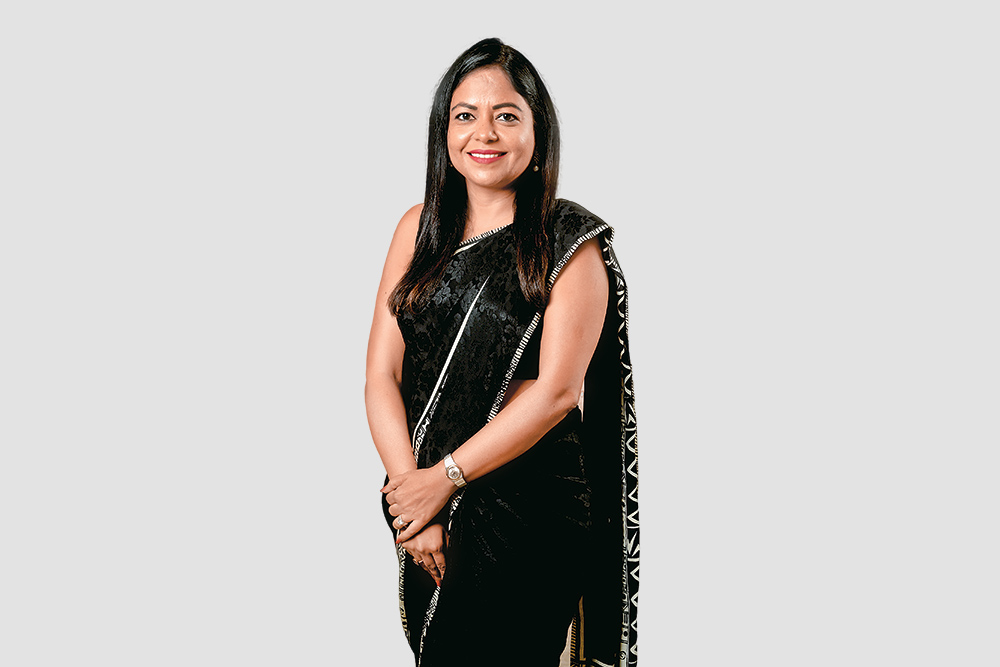Can you give an overview of IDFC FIRST Bank's approach to environmental, social and governance (ESG) policies? How is it integrated into the business?
At IDFC FIRST Bank, our approach to ESG primarily straddles three key priorities—integrating ESG into our products and services, ingraining sustainability within the organisation and aligning to global and national frameworks on ESG. We also believe that good governance is the cornerstone of good business. Towards this extent, we have the Stakeholders’ Relationship, ESG and Customer Service [SRECS] Board Committee and a dedicated management committee, steering ESG at the bank.
The core of our operations revolves around ‘Always You First’ customer philosophy. A unique proposition in this regard is our offering of 28 fee-free banking services, monthly interest credits, never expiring reward points among others.
From a lending angle, we have demonstrated our commitment to financial inclusion by being a truly universal bank. As part of our rural banking, we serve over 85,000 villages and over 12,000 pincodes, touching 8 million households across India.
We have also built a high-quality WASH [water, sanitation and hygiene] financing portfolio, where we have disbursed over 3.5 lakh loans. We were also early movers in the electric vehicles [EV] space. Today, in two-wheelers alone, we have a current portfolio of 1.9 lakh loans.
From an operational perspective, we are concentrating on making our infrastructure greener and sustainable. Several of our large offices are LEED [Leadership in Energy and Environmental Design] and IGBC [Indian Green Building Council] certified, with our corporate head office in Mumbai rated at IGBC Platinum. To reduce our carbon footprint, we have also adopted green power in our head office.
What are your plans for ESG?
In the short term, we are seeking to accelerate employee awareness through regular initiatives, ensure our ESG reporting is at par with the best practices in the industry and evaluate opportunities and risks arising from various ESG aspects.
In the medium to long term, our plan is to delve deeper into sustainable finance as a domain. This would enable us to offer more purpose-led products to our customers, create consistent win-wins, and impact and reduce the environmental footprint from our lending activities at large.
How is IDFC FIRST Bank tapping into opportunities arising from the transition to a low-carbon economy?
We are committed to finding such opportunities which align well with a low-carbon economy. Our move to finance EVs and bicycles is a clear example of how we could find such intersections.
We are also emphasising on the benefits of energy efficiency in our consumer lending business, which is intended to educate the customers on the environmental benefits of adopting energy-efficient appliances.
How does IDFC FIRST Bank promote diversity and inclusion?
A core tenet of our people policy is equal treatment, safe working environment and zero discrimination based on gender, religion or social background. As a new-generation bank with a large workforce, we constantly evaluate our internal diversity indicators, and work on various initiatives that move the needle. Over the past two years, we have progressively increased women participation in our workforce, and this metric is stronger for the younger workforce and for new hires.
Some of the key initiatives we have taken for fostering and maintaining diversity include programmes such as Maternity Buddy and Day Care facilities, which have resulted in about 90% of return of women employees post their maternity leaves. We also offer internal opportunities and short-term projects for our employees, so that they can learn and enhance their skillsets.
In what ways does IDFC FIRST Bank engage with and support the communities where it operates?
As a bank, we continue to foster a CSR [corporate social responsibility] programme that does meaningful work in communities. In 2023–24 alone, the total individuals benefitting from our CSR programme amounted to over 1.98 lakh. Some of the initiatives include livelihood development through the flagship Shwetdhara programme, which is an animal husbandry initiative, education by providing scholarships for the disadvantaged, entrepreneurship, particularly for women, health and sanitation, and disaster relief among others.
How are stakeholders' concerns integrated into ESG decision-making?
We maintain a razor-sharp focus on transparent customer communications and ensure that a significant number of banking services are offered free of charge.
We proactively align with globally recognised reporting frameworks and go beyond regulatory reporting to provide a transparent view to our investors, regulators and other stakeholders. In 2023–24, we published our first Integrated Report, and aligned our disclosures with GRI [Global Reporting Initiative] and SASB [Sustainability Accounting Standard Board] standards.
We also published our maiden Business Responsibility and Sustainability Report, which aligns with the regulatory disclosure requirements. We are also official participants of the United Nations Global Compact, which denotes our commitment towards realising the UN Sustainable Development Goals.
We have also initiated various actions on the climate action front, which includes baselining of our Scope 1, 2 and 3 emissions and conducting a stress test for climate risk on our portfolio. We are also developing our decarbonisation roadmap, which, subject to ecosystem development, also provides us a glide path to achieving net zero carbon emissions in the longer term.
Similarly, for our employees, we have conducted various initiatives, training and awareness sessions. Noticing a trend of employees now switching to EVs, we have also introduced EV charging facilities in three of our large offices.
Overall, we believe that ESG is a collaborative journey that involves everyone’s inputs, since it affects our collective future.











